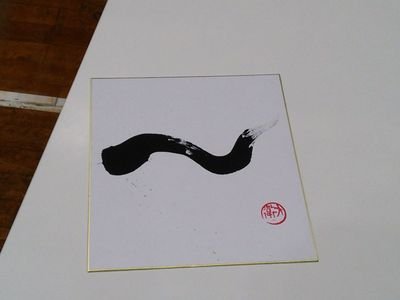結果
| 問題 | No.13 囲みたい! |
| コンテスト | |
| ユーザー |
 not_522 not_522
|
| 提出日時 | 2018-01-23 21:38:23 |
| 言語 | C++17 (gcc 15.2.0 + boost 1.89.0) |
| 結果 |
AC
|
| 実行時間 | 3 ms / 5,000 ms |
| コード長 | 6,497 bytes |
| 記録 | |
| コンパイル時間 | 2,084 ms |
| コンパイル使用メモリ | 202,004 KB |
| 最終ジャッジ日時 | 2025-01-05 07:47:48 |
|
ジャッジサーバーID (参考情報) |
judge4 / judge4 |
(要ログイン)
| ファイルパターン | 結果 |
|---|---|
| other | AC * 16 |
ソースコード
#include <bits/stdc++.h>
using namespace std;
struct Initializer {
Initializer() {
cin.tie(0);
ios::sync_with_stdio(0);
cout << fixed << setprecision(15);
}
} initializer;
template<int N> class AdjacentLoop {
private:
const static array<int, N> dy, dx;
struct Iterator {
const int y, x, h, w;
int val;
Iterator(int y, int x, int h, int w, int val) : y(y), x(x), h(h), w(w), val(val) {
for (; this->val < N; ++this->val) {
int yy = y + dy[this->val];
int xx = x + dx[this->val];
if (0 <= yy && yy < h && 0 <= xx && xx < w) break;
}
}
pair<int, int> operator*() {return make_pair(y + dy[val], x + dx[val]);}
bool operator!=(Iterator& itr) {return val < itr.val;}
void operator++() {
while (++val < N) {
int yy = y + dy[val];
int xx = x + dx[val];
if (0 <= yy && yy < h && 0 <= xx && xx < w) break;
}
}
};
Iterator i, n;
public:
AdjacentLoop(int y, int x, int h, int w) : i(y, x, h, w, 0), n(y, x, h, w, N) {}
Iterator& begin() {return i;}
Iterator& end() {return n;}
};
template<> const array<int, 2> AdjacentLoop<2>::dy{0, 1};
template<> const array<int, 2> AdjacentLoop<2>::dx{1, 0};
template<> const array<int, 4> AdjacentLoop<4>::dy{0, -1, 0, 1};
template<> const array<int, 4> AdjacentLoop<4>::dx{1, 0, -1, 0};
template<> const array<int, 5> AdjacentLoop<5>::dy{0, -1, 0, 1, 0};
template<> const array<int, 5> AdjacentLoop<5>::dx{1, 0, -1, 0, 0};
template<> const array<int, 8> AdjacentLoop<8>::dy{-1, -1, -1, 0, 0, 1, 1, 1};
template<> const array<int, 8> AdjacentLoop<8>::dx{-1, 0, 1, -1, 1, -1, 0, 1};
template<> const array<int, 9> AdjacentLoop<9>::dy{-1, -1, -1, 0, 0, 0, 1, 1, 1};
template<> const array<int, 9> AdjacentLoop<9>::dx{-1, 0, 1, -1, 0, 1, -1, 0, 1};
template<typename T> istream& operator>>(istream &s, vector<T> &v) {
for (T &t : v) s >> t;
return s;
}
template<typename T> ostream& operator<<(ostream &s, const vector<T> &v) {
for (const T &t : v) s << t << endl;
return s;
}
template<typename T> T min(vector<T>& v) {return *min_element(v.begin(), v.end());}
template<typename T> T max(vector<T>& v) {return *max_element(v.begin(), v.end());}
template<typename T> int min_element(vector<T>& v) {return min_element(v.begin(), v.end()) - v.begin();}
template<typename T> int max_element(vector<T>& v) {return max_element(v.begin(), v.end()) - v.begin();}
template<typename T> void sort(vector<T>& v) {sort(v.begin(), v.end());}
template<typename T, typename Function> void sort(vector<T>& v, Function func) {sort(v.begin(), v.end(), func);}
template<typename T> void rsort(vector<T>& v) {sort(v.rbegin(), v.rend());}
template<typename T> void reverse(vector<T>& v) {reverse(v.begin(), v.end());}
template<typename T> void unique(vector<T>& v) {v.erase(unique(v.begin(), v.end()), v.end());}
template<typename T> void nth_element(vector<T>& v, int n) {nth_element(v.begin(), v.begin() + n, v.end());}
template<typename T> bool next_permutation(vector<T>& v) {return next_permutation(v.begin(), v.end());}
template<typename T> int find(vector<T>& v, T t) {return find(v.begin(), v.end(), t) - v.begin();}
template<typename T> int in(vector<T> v, T t) {return find(v, t) != int(v.size());}
template<typename T> int lower_bound(vector<T>& v, T t) {return lower_bound(v.begin(), v.end(), t) - v.begin();}
template<typename T> int upper_bound(vector<T>& v, T t) {return upper_bound(v.begin(), v.end(), t) - v.begin();}
template<typename T> T accumulate(const vector<T>& v, function<T(T, T)> func = plus<T>()) {return accumulate(v.begin(), v.end(), T(), func);}
template<typename T> void adjacent_difference(vector<T>& v) {adjacent_difference(v.begin(), v.end(), v.begin());}
template<typename T> void adjacent_difference(vector<T>& v, vector<T>& u) {adjacent_difference(v.begin(), v.end(), u.begin());}
template<typename T> void partial_sum(vector<T>& v, vector<T>& u) {partial_sum(v.begin(), v.end(), u.begin());}
template<typename T> T inner_product(vector<T>& v, vector<T>& u) {return inner_product(v.begin(), v.end(), u.begin(), T(0));}
template<typename T> int count(const vector<T>& v, T t) {return count(v.begin(), v.end(), t);}
template<typename T, typename Function> int count_if(const vector<T>& v, Function func) {return count_if(v.begin(), v.end(), func);}
template<typename T, typename Function> void remove_if(vector<T>& v, Function func) {v.erase(remove_if(v.begin(), v.end(), func), v.end());}
template<typename T, typename Function> bool all_of(vector<T> v, Function func) {return all_of(v.begin(), v.end(), func);}
template<typename T, typename Function> bool any_of(vector<T> v, Function func) {return any_of(v.begin(), v.end(), func);}
template<typename T, typename Function> bool none_of(vector<T> v, Function func) {return none_of(v.begin(), v.end(), func);}
template<typename T> vector<T> subvector(vector<T>& v, int a, int b) {return vector<T>(v.begin() + a, v.begin() + b);}
template<typename T> int kinds(const vector<T>& v) {return set<T>(v.begin(), v.end()).size();}
template<typename T> void iota(vector<T>& v, T t = 0) {iota(v.begin(), v.end(), t);}
template<typename T> bool is_sorted(const vector<T>& v) {return is_sorted(v.begin(), v.end());}
class UnionFind {
private:
int n;
vector<int> a;
public:
UnionFind(int n) : n(n), a(n, -1) {}
int find(int x) {return a[x] < 0 ? x : (a[x] = find(a[x]));}
bool equal(int x, int y) {return find(x) == find(y);}
void unite(int x, int y) {
x = find(x), y = find(y);
if (x == y) return;
if (a[x] > a[y]) swap(x, y);
a[x] += a[y];
a[y] = x;
--n;
}
int size() {return n;}
int size(int x) {return -a[find(x)];}
bool isRoot(int x) {return find(x) == x;}
vector<vector<int>> groups() {
vector<vector<int>> r(a.size()), res;
for (uint i = 0; i < a.size(); ++i) r[find(i)].emplace_back(i);
for (auto&& i : r) if (!i.empty()) res.emplace_back(move(i));
return res;
}
};
int main() {
int w, h;
cin >> w >> h;
vector<vector<int>> m(h, vector<int>(w));
cin >> m;
UnionFind uf(w * h);
bool possible = false;
for (int i = 0; i < h; ++i) {
for (int j = 0; j < w; ++j) {
for (auto [y, x] : AdjacentLoop<2>(i, j, h, w)) {
if (m[i][j] != m[y][x]) continue;
if (uf.equal(i * w + j, y * w + x)) possible = true;
uf.unite(i * w + j, y * w + x);
}
}
}
cout << (possible ? "possible" : "impossible") << endl;
}
